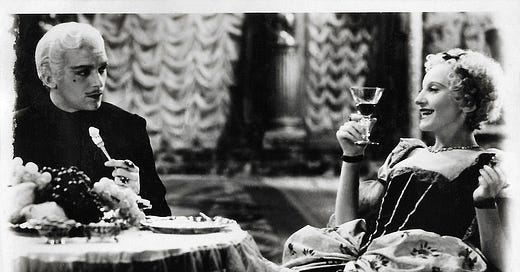Rupert Everett and the American No
As someone who spends a lot of time writing pitches, the idea behind actor and director Rupert Everett’s debut collection of short stories “The American No” made me smile.
“Let’s do this,” Everett says, paraphrasing a Big Producer, “I’m psyched. We love you here at Bottomy Bay.”
You leave the meeting walking on air. It’s in the bag. Then you never here another word.”
It’s called the American No.
Everett has taken a lifetime’s supply of this particularly fiendish incarnation of the rejected pitch, and turned them into something special. There is no theme, which means the collection jumps from the death of Oscar Wilde, to a tale of an unwitting sperm donation ring in down-and-out Los Angeles, to a Hunter S Thompson-esque acid trip at a family funeral. Once you get over the surprise, it’s an exhilarating ride.
Everett has been in some great movies, and is the best thing about a lot of bad ones (I actually cheered when he came on as the Duke of Wellington in the eleventh hour of Ridley Scott’s three hour film, Napoleon.) This scene-stealing charm serves him well as a writer short stories, where the trick is getting to the heart of a character and catching the voice with as few words as possible. In “Ten Pound Pom,” the last son of a crumbling Irish dynasty decides to emigrate to Australia in the nineteen fifties, falling into a doomed romance aboard the ship. With just a few strokes, Everett conjures us a ship, teeming with life as various social classes and nationalities do their best to live alongside each other in cramped cabins:
“He thought quickly which would be the best bunk to get, and decided on the top. That way he could keep out of the way of anyone he was billeted with, for he wasn’t planning on making any friends. ‘I may try and chat a bit with some of the Greeks when they get on board. I learned it in school.”
Some of the stories work better than others – the one about the countess being picked up in a teashop is basically a dirty joke extended beyond the punchline. Rupert (if I may) would probably get away with it were he narrating the story himself; I was forced to imagine his plummy drawl to rescue sentences like: “He had a sexy Adam’s apple,” and “Equally, she was a girl’s girl.”
On home territory, Everett is remorselessly funny. On the ageing actor: “One’s skin thickens. One’s original features disappear under the hide – which accounts for why all old actors overact […] one’s reaction to a simple line like ‘Cup of tea, love?’ can be made to look like The Scream by Munch.”
At times I was struck by the elegance of an image: “the kinds of knives and forks peculiar to trains and boats, scattered around tables as if they had been interfered with by a poltergeist,” or the succinct evocation of a way of life: “Bohemian, bicoastal, bisexual.” Part of the fun is the writer’s refusal to care about what is fashionable, or what producers think readers want. I didn’t think I needed a one act play of Proust’s À la recherche du temps perdu – and how wrong I was. Sometimes it’s worth pushing through an American No – even if takes years for a good idea to find a home.
There is a lot in this book – meditations on empire, and growing old, and why people pay for sex. It slips down like sweet wine at a gate-crashed party. Best savoured in a setting of fading decadence, with just a touch of depravity.




